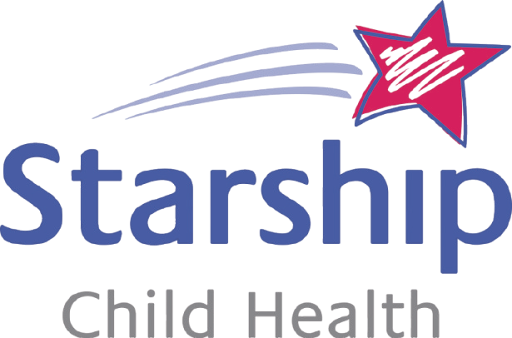Maternal Psoriasis and Infant Neurodevelopmental Outcomes (MaPINO) Study
Ethics reference: HDEC 2022 FULL 11776; ADHB locality: Approved
Do inflammatory conditions in pregnancy, such as psoriasis, influence a child’s development? We have designed a study to research this question and are inviting pregnant women with and without psoriasis to take part.
All women will have dedicated surveillance of their psoriasis (and dermatology review if needed), and all children will get a full neurodevelopmental assessment at two years of age. Each participant will receive a $50 gift voucher (koha) to acknowledge their contribution to the study. Women less than 20 weeks pregnant will also have the option of blood tests to look at markers of inflammation. We are currently recruiting in the Auckland, Waikato, Bay of Plenty, Wellington and Christchurch regions.
If you are interested in participating or would like to discuss the study further, please contact the research team at mapino@adhb.govt.nz or phone Ali Johnston Research Nurse, on 021 744 958

Background
Psoriasis is a common inflammatory skin condition that affects 1 – 2 % of people, and up to 10% of women have an autoimmune or inflammatory disease like psoriasis during pregnancy. The purpose of this study is to help us understand whether psoriasis and inflammation in pregnancy affects fetal brain development. Some animal models suggest inflammation in pregnancy influences brain development, but we do not know if this is the case in humans.
We will recruit 100 pregnant women with psoriasis and 100 pregnant women without psoriasis to the study and collect details regarding pregnancy and delivery. We will then assess each child’s developmental profile when they are two years old.
Who can take part in the study?
Women with mild-moderately severe psoriasis as well as women without psoriasis as the comparison group. We will score psoriasis severity at the time of enrolment.
Who cannot take part in the study?
Women with severe psoriasis requiring treatment with biologics
Women with an autoimmune disease other than psoriasis
Women with surrogate pregnancies, women with twin pregnancies, or pregnancies conceived through embryo donation
What will the study involve for me, my child and our family?
Accessing your medical records to collect data regarding your pregnancy and your baby’s birth and wellbeing. We will ask you to please complete a similar questionnaire about your child and family’s health and wellbeing when your child is two years old.
A 30-minute study questionnaire which asks about your general health. There is a separate optional questionnaire for your baby’s father to complete too.
A developmental assessment for your child at two years of age. This will take one-hour and is called the Bayley Scales of Infant and Toddler Development (Bayley-4).
If you have psoriasis, the study will also involve:
Study visits to grade your psoriasis. A clinician involved in the study will record the extent of your psoriasis at the enrolment visit. We will ask you to complete a one-page questionnaire (Dermatology Life Quality Index) that has been used to investigate the quality of life of people living with psoriasis.
Keeping a treatment diary for your psoriasis during pregnancy. Treatment of your psoriasis will remain the responsibility of your general practitioner or specialist if applicable.
Biomarker Sub-study
In 30 pregnant women in each group (30 women with psoriasis and 30 women without psoriasis), who are less than 20 weeks pregnant and live in the Auckland region, we will also perform blood tests for indicators of inflammation and to find out the activity of different genes.
This part of the study will involve:
An additional blood sample being taken in each trimester of pregnancy (12-14 weeks, 24-28 weeks and 34-36 weeks gestation) and at delivery. We will coordinate this blood test with other blood tests that you need wherever possible, but you may need an additional blood test on one or two occasions. We will also score the severity of your psoriasis in each trimester of pregnancy and around the time of birth.
A 2 tsp sample of cord blood being taken at delivery to look at indicators of inflammation and to find out the activity of different genes in your baby at delivery.

© UNICEF/UN0159524/Chute
Where can I get more information about the study?
If you are interested in participating or would like to discuss the study further, please contact the research team at mapino@adhb.govt.nz or phone Ali Johnston, Research Nurse on 021 744 958.
Funding
The funding for the study has been generously awarded by the Neurological Foundation of New Zealand. https://neurological.org.nz/

The Research Team

Dr Hannah Jones, Paediatric Neurologist, Starship Hospital
A/Prof Jane Alsweiler, Neonatal Paediatrician, Auckland City Hospital
Dr Steven Lamb, Dermatologist, Auckland City Hospital
Dr Michelle Wise, Obstetrician, Auckland City Hospital
Dr Paul Jarrett, Dermatologist, Middlemore and KidzFirst Hospitals
Prof Russell Dale, Paediatric Neurologist, Children’s Hospital at Westmead, Sydney
Dr Scott Graham, Neuroimmunologist, Centre for Brain Research, University of Auckland
Dr Brian Gloss, Bioinformatician, Westmead Institute for Medical Research, University of Sydney
Ali Johnston RN, Research Coordinator, Auckland District Health Board
Dr Dug Yeo Han, Biostatistician, Starship Clinical Research Team
Dr Ngaire Anderson, Obstetrician, Waitemata District Health Board
Dr Charlotte Oyston, Obstetrician, Counties Manukau District Health Board
Approved by Northern B Health and Disability Ethics Committee 24/02/2022 (ref: 2022 FULL 11776)
